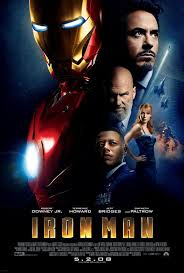Working Title Films is owned by Universal Studios, one of the ‘big six’ corporations. Universal Studios owns a number of media companies, the most well known being universal pictures. This means that Working Title Films can be associated with a very successful business of operations. It also means that they are able to have a bigger budget and bigger advertisement oppurtunities. As well as this, it means that Universal is able to manage film distribution so that the studios that they own are not in direct competition in theatres, making everyone more money.
Author mypreferednameistaken
Prosumers
A prosumer is a person who makes their own content and products. This has become more popular as the years go on, with more people creating things based off of shows, or even just making their own shows on platforms such as YouTube or Kickstarter (for funding). This means that there is a lot of content for the public to see, which has both positives and negatives. One such positive is that it makes the potential audience interact more with the product, as they are able to relay choices and opinions. It also means that people are able to view the media that they want to see. However, this can lead to an avalanche of opinions that can drown out the original work. As well as this, the number of prosumers out there can reduce the number of things seen on television or in theatres, as people are able to see what they really want, instead of the closest approximation. Producers us converged devices to push more content relating to their own into the market. This can determine the amount of recognition that a brand or franchise receives.
DFP and VPF
In 2010
- 763 sites & 3741 sites/870000
- +70% of screens in multiplexes
- +60% screens own by big 3 operators
- +80% owned by biggest 6
Digital cinema
- Potential gateway to
- 3d
- Greater flexibility of programming
- ‘Alternative content’
- Opposite to save 100’s of mil of £- potentially allows for greater investment in production
Digitisation
- 2004-07= UKFC digital screen network
- 09^=3d driven digitisation by major circuits
- 10^=digital consolidation by major circuits
- 11-13=digitisation of smaller independents through UK dfp
- 1?
Kodak last to make filmàlose moneyàbut like the aesthetic
Financial
- Costs around 50k per screen plus finance and other costs
- Major distributors unwilling to accept any lower standard
- No or minimal support
- Current funding mechanism (Virtual Print Fee) is complex and very difficult
VPF
- Sum paid to cinema when filmed played on vpf supported system in release day
- If the cinema plays enough first run films over the funding period(like 10 years) then covers off 75/80% equipment and financial
- Good proposition for major commercial operators
Digital Funding Partnership Solution
- Co-op of some 400 screens covering all types of independently owned cinemas
- Collectively have sufficient first run programming to enter vpf deals
- Acts as quasi circuit and has fully financed deal
- All cinemas benefit and none lose
- Supported and backed by all studios
Tech and logistical
- Competition for equipment & tech expertise for physical installations
- Space and facilities required in projection booth
- Training and mind set issues
- Loading and playing content
- Security, unlock keys for encrypted content
- Complete new way of operating
The Benefits and Drawbacks of 3D
3D movies have revitalised the cinema goer’s experience in theatres. Over the past few years, the number of 3D movies has grown to the point that many of the movies in theatres have 3D and regular showings overlapping. One of the benefits of 3D movies is that it enhances the viewers experience, bringing them closer to the movie. People also watch 3D movies in theatres, and although it is possible to watch them at home, this is only with specialized televisions, which cost a lot of money. However, there are drawbacks to this as well. Firstly, many people do not like the glasses that are necessary for a 3D experience. whether it be because they already wear glasses, and wearing two pairs of glasses is not only uncomfortable but looks strange or simply because they do not like to wear them in the first place. As well as this, being blind in one eye or having Anismetropic Amblyopia would not allow a person to watch the movie in 3D, as their brain cannot process the information directed at the non working eye. Also, although it is less common now than when 3D was first introduced, the experience can cause nausea and headaches. 3D is also not always the experience that audiences expect, as-unless the movie was shot to be 3D specifically- the effect is underwhelming.
The Water Diviner
The Water Diviner is a movie primarily aimed at older people, due mainly to the religious and historical themes, which do better with the older generations than others. The people who watch this could possibly have stricter values due to the perceived religious themes that the movie contains. It is also more likely to interest people of a higher NRS social grade, due to the historical elements which are viewed more by the higher social grades than the lower. It is also likely to appeal to both men and women, due to the war and drama genres, but more so toward women, as dramas are more popular with women than men.
Fast and Furious 7
Fast & Furious 7 is a movie primarily aimed at people between the ages 12 and 30, due to a combination of a ’12A’ rating and the 14 years since the first movie, which is rated as a ’15’. This movie is most likely targeted toward people with looser values, as the primary themes in the movie are based around illegal activity and violence, which may upset people with stricter values. This is also most likely targeted towards people of lower to middle NRS social grade, as well as males, according to the BFI statistics. This could be due to the theme, as well as the cars-which are usually marketed towards men.
Home
Home is a movie primarily aimed at children, a shown by its ‘U’ rating, and the use of animation-which is used more in children’s movies in western culture than in other genre. As it is primarily for children, it would also have to appeal to the adults who have children, as many adults don’t want to see a movie that will not entertain them. They will also need to be convince that it would be safe for their children to watch, due to their values, which could be more accepting as the main human character is a young immigrant girl from Barbados. These people would also likely be from a higher NRS social grade, as they would need to pay for both child and adult tickets, which have become more expensive in recent times. As this movie is targeting mainly children, it is difficult to decide what gender it would most appeal to, as many children’s movies in recent times are genderless. However, this movie is part of the adventure genre which has been said to appeal mostly to males.
Iron Man
The Iron Man movies are an extremely successful franchise that have made over a billion dollars in theatres alone. Based of of the Iron Man comics by Marvel, these movies would have had a large fan base regardless of the current success, simply because of the wide appeal that created a market for this franchise. Other than the comics, there is also a variety of toys that have been made specifically from the iron man movies, such as plushies, clothing and pop figures, and game figures for things such as the Disney Infinity games.
The benefits of this is that it gives the consumer a wide variety of products that the audience can interact and engage with. It also allows fans to see their favourite characters appear in multiple media outlets. The producer also benefits as the Iron Man movies give them a profit, through both the movies, the games, and the crossovers with the wider Avengers franchise.
Free Press
- Who owns the media has a huge impact on the stories that get covered
- absentee corporations own more and more of our media
- they are cutting journalists, gutting newsrooms and replacing meaningful debate with celebrity gossip and junk news
- dodging the Federal Communications Commission’s ownership rules to snap up more outlets and create media monopolies
- The more independent outlets a community has, the more different viewpoints will be presented
- When one company owns everything in your town, it can cut staff and not worry about getting scooped by a competitor
- fewer reporters=the less journalism on the news
- fewer DJs=more automated computers and pre-programmed playlists
- The FCC is supposed to preserve a competitive media landscape and ensure that broadcasters are good stewards of the public airwaves
- sets limits on how much of your local media one company can own
- limits are supposed to encourage stations to compete to provide quality journalism
- powerful media companies have the FCC’s ear, and over the years it has become easier for these companies to snatch up more of our local airwaves.
- sets limits on how much of your local media one company can own
Is British Film Dead?
- Hollywood Accountancy does not obey normal regulations
- Hollywood studios can do things with accounts which are illegal in any other business
- Franklin D Roosevelt wanted to help Britain by declaring war on Germany but couldn’t get Congressional support
- launched a propaganda campaign to induce the American people to call for one
- couldn’t get the newspapers “on message” so he went to Hollywood
- agreed to produce anti-German movies in exchange for financial-control exemptions
- continues to this day
- agreed to produce anti-German movies in exchange for financial-control exemptions
- couldn’t get the newspapers “on message” so he went to Hollywood
- launched a propaganda campaign to induce the American people to call for one
- Franklin D Roosevelt wanted to help Britain by declaring war on Germany but couldn’t get Congressional support
- Hollywood studios can do things with accounts which are illegal in any other business
- 30% cheaper in Britan for America to shoot in Britan
- American workers – unionised and citizens of a republic – are less submissive than their British counterparts
- The funding of foreign films with grants and lottery cash rolls a heavy stone over the grave of the UK film industry – preventing its resurrection
- Before the abolition of the Eady Levy and capital allowances, we had our own film industry
- Between 1948 and 1972, just one British company (Hammer) made 168 movies – all of them released in British cinemas and sold around the world.
- In one year alone (1956), Hammer released nine movies
- Utterly inconceivable today
- The Eady Levy exchanged access to our domestic market for a small percentage of the income they received from selling their films in Britain.
- if their movies did badly they lost very little, and if they performed well their losses from the levy were insignificant compared to their profits
- sums collected under the levy were passed on to British distributors
- in the early Seventies, under pressure from the US government, the levy was abolished
- Arts ministers in the past few decades have unable to help British films because of the impotence of their departments
- Don’t the power in Cabinet to make legislation happen
- The Treasury, the Department of Trade & Industry and the Office of the Prime Minister have been against protecting British films
- commitment to the ideology of the free market
- The free market reduced the British film industry to little more than a Hollywood service provider
- commitment to the ideology of the free market
- The Treasury, the Department of Trade & Industry and the Office of the Prime Minister have been against protecting British films
- Don’t the power in Cabinet to make legislation happen
- the Hollywood Six control a whopping 84% of our domestic market
- The French company Pathé controls about 12 %
- Our own films have less than 4% market share
- A national film industry cannot be said to exist unless it has at least 20 % of its home market
- France continues to protect its film industry
- foreign companies are precluded from owning a greater than 70% of the French market
- guarantees 30% of the movies released in France are French
- French filmgoers complain about this because they’d rather see more American ones
- Of the hundred-or-so French films released each year, about 90 are bad but the French industry’s hit ratio (approximately 10 %) is four times more successful than Hollywood’s
- America makes about 2,000 movies a year
- about 460 are released, out of which 50 are profitable
- hit ratio is only 2.5 %.
- America makes about 2,000 movies a year
- Of the hundred-or-so French films released each year, about 90 are bad but the French industry’s hit ratio (approximately 10 %) is four times more successful than Hollywood’s
- foreign companies are precluded from owning a greater than 70% of the French market
- During the 35 years before 1970, British movies created close to 100 stars
- no stars have been created since 1970
- Anthony Hopkins, Daniel Day-Lewis, Gary Oldman, Ralph Fiennes, Kate Winslet, Pierce Brosnan, Sir Ian McKellen, Kate Beckinsale, Catherine Zeta-Jones, Jude Law, Keira Knightley and Orlando Bloom were all made into stars by Hollywood
- no stars have been created since 1970
- JK Rowling wanted to sell the rights to her Harry Potter books to go to a British studio, but there isn’t one, so she sold Harry Potter to Warner Bros
- often believed the reason why projects such as Harry Potter are made by the Americans is because they have the money. But there is not one British company currently set up to give a film a general UK release even though we have billions of pounds invested every day of the week
- Before 1972 distributors decided what movies to make and who would make them
- employed bankers and filmmakers to produce the movies, and created publicity departments and movie stars to sell them.
- released in the UK, then sold worldwide
- revenues were substantial but as they had government support they survived
- If protection had not been removed, these corporations would still be financing and releasing films today





